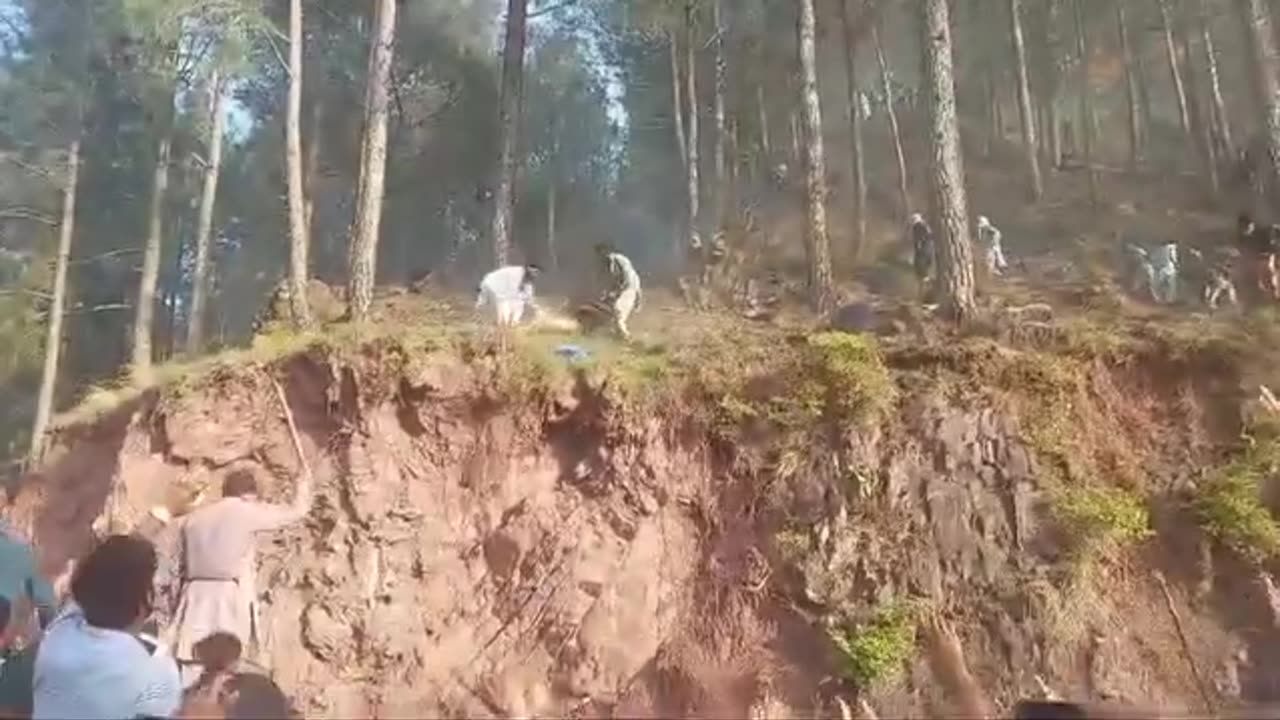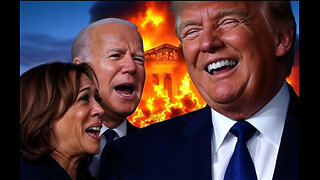Premium Only Content

The Kashmir conflict is a complex and longstanding issue that has shaped the
The Kashmir conflict is a complex and longstanding issue that has shaped the geopolitics of South Asia for decades. Spanning over seven decades, the dispute revolves around the region of Kashmir, which is claimed by both India and Pakistan, with China also holding a small portion. The roots of the conflict can be traced back to the partition of British India in 1947, which led to the creation of India and Pakistan as separate nations.
At the heart of the conflict lies the question of Kashmir's political status and the right of its people to self-determination. When British India was divided, the princely states were given the option to join either India or Pakistan based on their demographics and the rulers' decisions. Kashmir, however, presented a unique situation. Ruled by Maharaja Hari Singh, a Hindu ruler governing a Muslim-majority population, Kashmir's accession became a point of contention.
In October 1947, as tribal militias supported by Pakistan invaded Kashmir, Maharaja Hari Singh sought military assistance from India, agreeing to accede to India in return. This led to the Indo-Pakistani War of 1947-48, resulting in the division of Kashmir into territories administered by India (Jammu and Kashmir) and Pakistan (Azad Kashmir and Gilgit-Baltistan). The United Nations intervened, calling for a ceasefire and proposing a plebiscite to determine the region's future, a resolution that both India and Pakistan agreed to, but never implemented.
Since then, Kashmir has been a flashpoint for conflict between India and Pakistan, with numerous wars and skirmishes exacerbating tensions. The Line of Control (LoC), established after the 1947-48 war, serves as the de facto border between the Indian and Pakistani-administered parts of Kashmir, but it remains heavily militarized, with frequent exchanges of fire.
The insurgency in Indian-administered Kashmir, which erupted in the late 1980s, added another layer of complexity to the conflict. Fueled by grievances over political repression, human rights abuses, and a desire for independence or merger with Pakistan, the insurgency led to a cycle of violence and repression that continues to this day. Both Indian security forces and militant groups have been accused of human rights violations, including extrajudicial killings, torture, and disappearances.
Meanwhile, Pakistan has provided moral, diplomatic, and allegedly material support to separatist groups in Kashmir, further exacerbating tensions with India. The issue has been a major obstacle to normalized relations between the two nuclear-armed neighbors, leading to periodic crises and diplomatic standoffs.
Efforts to resolve the Kashmir conflict have been sporadic and largely unsuccessful. Bilateral talks between India and Pakistan have been marred by distrust and have failed to produce any significant breakthroughs. International mediation attempts, including those by the United States, have also yielded little progress.
The situation in Kashmir has been further complicated by domestic politics within India. The abrogation of Article 370 of the Indian Constitution in August 2019, which granted special autonomy to Jammu and Kashmir, and the subsequent bifurcation of the state into two union territories, sparked outrage and protests in the region. India's actions were strongly condemned by Pakistan and drew criticism from the international community, which raised concerns about human rights violations and the erosion of democratic norms.
The Kashmir conflict has profound implications for regional stability and security. The unresolved dispute continues to fuel hostility between India and Pakistan, hindering economic development and exacerbating sectarian tensions. Moreover, the militarization of the region and the risk of nuclear escalation pose a grave threat to international peace and security.
In conclusion, the Kashmir conflict remains one of the most intractable and volatile issues in the world today. Its resolution requires political will, dialogue, and compromise from all parties involved. Until then, the people of Kashmir continue to bear the brunt of violence and instability, caught in the crossfire of competing national interests and geopolitical rivalries.
-
 2:04:26
2:04:26
Nerdrotic
7 hours ago $9.97 earnedThe Program: The Government's UFO Cover Up Programs | Forbidden Frontier #085
49.5K7 -
 2:13:07
2:13:07
vivafrei
9 hours agoEp. 243: HOLIDAY SPECIAL! The Great H1B Visa Debate! Jay z Gets Scorched! Attack in Germany! & MORE!
126K269 -
 16:40
16:40
Russell Brand
11 hours agoTHIS MASSIVELY BACKFIRED...
146K488 -
 25:41
25:41
SB Mowing
15 hours agoPICTURE living next to THIS and not knowing what to do…
95.1K33 -
 2:16:01
2:16:01
George Galloway
1 day agoNEW YEAR COUNTDOWN - MOATS with George Galloway - EP 408
99.7K146 -
 18:39
18:39
Stephen Gardner
11 hours ago🔥BREAKING! Trump's SHOCKING New Demand | Biden admits DOJ TARGETED Trump Illegally!
78.1K379 -
 1:20:23
1:20:23
Josh Pate's College Football Show
16 hours ago $14.23 earnedCFP Prediction Special: OhioSt vs Oregon | UGA vs Notre Dame | Texas vs ASU | Boise vs PennSt
108K6 -
 7:50:03
7:50:03
Scottish Viking Gaming
15 hours ago💚Rumble :|: SUNDAY FUNDAY :|: Virginia has two Verginers, Change my Mind!
120K18 -
 1:49:50
1:49:50
Winston Marshall
2 days agoThe DARK Reality of Socialism - Historian Giles Udy
92.4K88 -
 1:09:28
1:09:28
Sports Wars
13 hours agoBengals STAY ALIVE In OT Thriller, ESPN's Ryan Clark SLAMMED, NFL DESTROYS NBA On Christmas
78.2K12